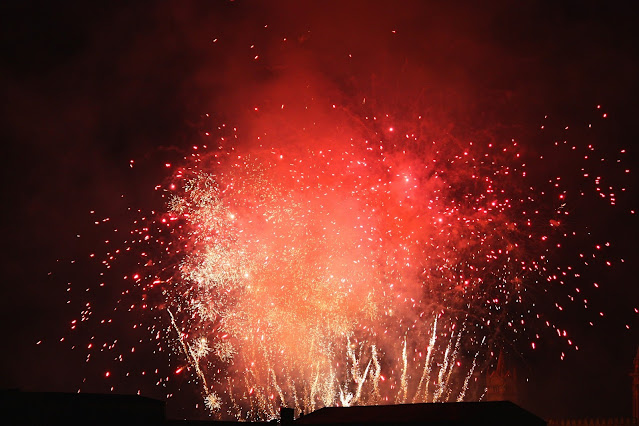EcoWaste Coalition Welcomes Quezon City’s Tightened Rules vs. Firecrackers and Fireworks
The waste and pollution watchdog group EcoWaste Coalition has welcomed the latest moves by the Quezon City Government to protect the public health and the ecosystems from the health, safety, fire and environmental hazards posed by firecrackers and fireworks.
Through Executive Order No. 54 signed by Mayor Joy Belmonte last December 22, 2022, the Quezon City Government released the guidelines on the manufacture, distribution, sale and use of firecrackers and other pyrotechnic devices, including the conduct of firework displays in public spaces.
The promulgated guidelines seek “to minimize, if not eliminate, the number of firecracker-related injuries and casualties, to protect homes, commercial buildings and other structures against incidental (sic) fires, and to lessen the harmful effects of hazardous chemicals and pollutants in firecrackers and fireworks, such as, but not limited to carbon, potassium nitrate, sulfur, barium, cadmium, lead, manganese and zinc.”
“We particularly welcome the ban on the use of firecrackers and fireworks by private households, the ban on their sale in sidewalks, tiangges, stores and similar establishments, and the ban on the selling, sharing or giving of such devices to minors,” said Aileen Lucero, National Coordinator, EcoWaste Coalition. “The effective enforcement of these prohibited acts will surely help in preventing and reducing firecracker- and firework-related injuries and fires in the city.”
“We would have preferred a comprehensive ban on firecrackers and fireworks to address the toxic pollution caused by these devices that infringes on our right to clean air – a human right recognized and protected by the Clean Air Act,” she said, noting the need for a presidential or congressional act for such an all-inclusive ban to happen.
To meet the objective of minimizing injuries and casualties, the guidelines should exclude “watusi” among the allowable firecrackers, the EcoWaste Coalition suggested, noting that “watusi” is among the firecrackers prohibited by the Philippine National Police (PNP) and that the ingestion of “watusi” can be dangerous and life-threatening.
Also, the guidelines should have included a provision on certified, properly labeled and locally manufactured firecrackers and fireworks with Philippine Standard (PS) quality mark, as recommended by the Department of Trade and Industry (DTI), for permitted firework displays with valid clearance.






Comments